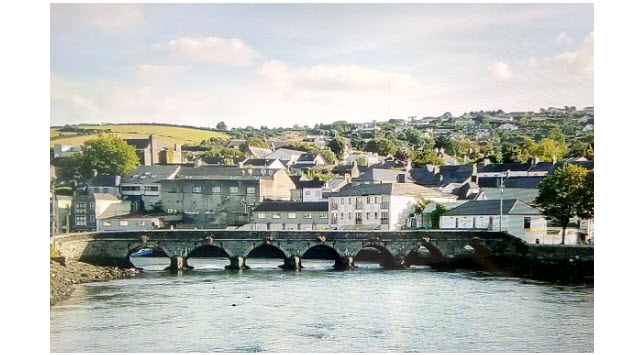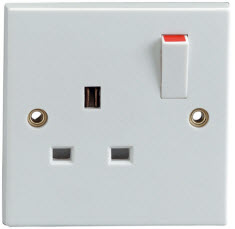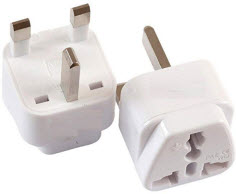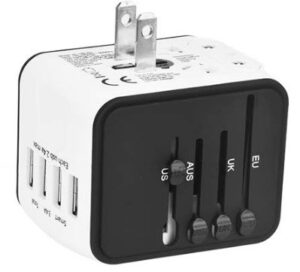
AirBnB Under Siege And On Fire In Ireland
AirBnB is very popular, widespread, and fairly reasonably priced in Ireland. As a result, you’ll find that most towns currently offer a wide variety of rental options to tourists. The first part of this post lets you know what to expect in a typical Irish AirBnB and gives you some advice on what to bring and how to contact your host.
The second part of this post covers AirBnB’s current status in Ireland. Because, the love tourists have for AirBnB is not shared by many local councils and planning departments. In cities like Dublin, Cork, and Galway, where there’s a serious shortage of rental homes and apartments, many homeowners are opting to join AirBnB and get more money renting short-term rather than long-term. The result is that these already tight markets are seeing an even smaller number of long-term rentals listed. The bureaucratic backlash has begun and is likely to have a significant impact on the number of AirBnBs available to tourists.
To access Irish listings on AirBnB.com, click here.
Common amenities
Because Ireland is a major tech leader in Europe, most listings include wifi and cable television as standard features. You’ll also almost always find washing machines in the rentals, but almost never clothes dryers. Europeans in general don’t use clothes dryers, preferring to hang their clothes out on lines. This is true even in places like Ireland where cold, damp, and/or rainy days are more frequent than sunny ones.
When booking, keep in mind that Irish weather can be fickle year round. Even in mid-summer it’s not unusual to get a week or two of cold, rainy days. As a result, make sure the place you’re thinking of renting lists some form of heating. If not, enquire before you pay for your stay.
Electrical voltage
The standard voltage in Ireland (and all of Europe and most of the world) is either 230 or 240 volts. That’s twice what it is in America.
Irish electrical plugs look like this. To make them work, you must flip the red switch to turn on power to the outlet.

If you plan to bring an American hair dryer, curling iron, reading light, or other low-tech device with you, you will need to buy a combination transformer/adapter. Do not try to use a simple adapter!
Adapters, by themselves, simply allow one type of plug to be inserted into a plug receptacle that it wasn’t designed to be used in. They do not change the voltage. So if you use an adapter without a transformer, you will literally burn out the electronics within your low-tech device. Adapters are usually lightweight plastic, cost about $3-5 each, and for Ireland, often look like the following.

To safely use your low-tech electronics, you need to bring a combination transformer/adapter. These cost around $20 and usually come with a variety of plug options so you can use them all over the world. They instantly convert 230 or 240 volts into 120 volts, preventing your low-tech electronics from getting fried. They also allow you to select the kind of plug outlet type you need for the country you’re in. A typical combo transformer/adapter looks like this (note the ability to select the plug type based on country. In the image, the US plug-type is selected but you could also select Australian (AUS), British/Irish (UK), or European Union (EU):

Note: High-tech electronics like laptops, mobile phones, and tablets contain built-in transformers, so they adjust automatically to higher voltage. You can plug them in to the wall using only an adapter.
Contacting your host
If you need to call your host on arrival, keep the following tips in mind:
- Irish landlines and mobile numbers begin with a zero.
- If you’re calling from an Irish phone to an Irish phone, you must dial the 0.
- So to call (01)12345678 from a phone in Dublin, you would dial all of those numbers.
- If you’re calling from an American phone to an Irish mobile or landline phone, you must do the following:
- Dial the USA exit code (011) plus the Irish country code (353), then dial the local Irish cell or landline minus the 0 that appears at the start of the Irish mobile or landline number.
- So to call the Dublin number (01)12345678 from a phone in Chicago, you would dial 011 353 1 12345678.
Recent local changes to AirBnB
As of July 1, 2019 new rules will go into effect regarding AirBnB rentals. According to the online newspaper IrishCentral.com
. . . anyone renting a property on Airbnb will have to register with their local authority and provide details of the property and the number of days it is being rented. An annual cap of 90 days rental will be imposed and homeowners will only be allowed to rent out their homes for 14 days or fewer at a time.
“Airbnb gets its wings clipped in Ireland” IrishCentral.com (January 10, 2019)
Additional restrictions will apply to people living in areas where housing is in high demand, like Dublin and Cork. In those cities, people who want to rent out more than one property via AirBnB must get permission from their local authority to do so.
Based on preliminary reports, most applicants in these cities are seeing their requests denied outright. The question that remains is what happens next? Will owners start renting the properties long-term again, as is the hope of the councils? Or will they ignore the requirement to contact the councils and continue to rent short-term in the belief that enforcement of the rules will be lax?
The immediate impact this will have on AirBnB rental options is not clear. In the long run, though, it seems likely it will reduce the overall supply of short-term apartments for rent, especially in the larger cities. And as a result, nightly rates could go up as competition decreases.
Update: June 19, 2019
The Irish Times newspaper published an article on June 18, 2019 entitled “Why the new Airbnb regulations are unlikely to work.” To sum up their main points: the rules likely won’t work for the following two reasons:
- There are exemptions that many owners will be able to take advantage of to keep their properties rented short-term
- Enforcement is up to local councils, many of which don’t have nearly enough staff to police the industry.
We’ll update this blog again after the rules go into effect.
Related links
If you liked this content, check out our other A Tourist Guide to Ireland posts: